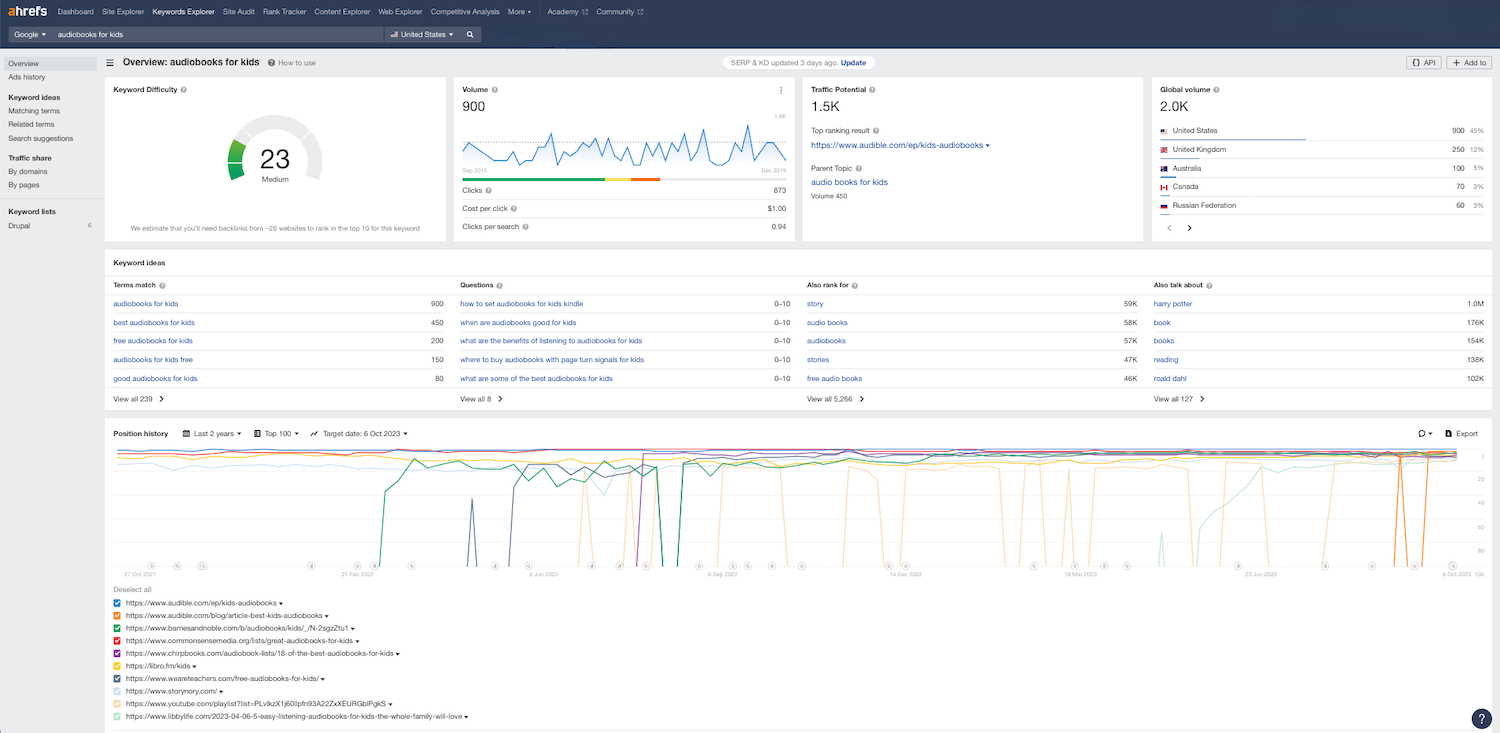
What Tools for Ecommerce Do You Need in Your Online Store?
Building an online store is only the beginning. Once you've created such a website, you must take care of its online visibility, good user experience, and keeping sales high. Additional ecommerce tools that you can integrate with the online platform used by your company can help you achieve all these goals.
Start by building a quality online store
You can create an online shop using one of the open source ecommerce platforms. Choosing the right technologies is crucial to the success of your venture. They’ll guarantee the reliability of your internet store and excellent user experience (UX).
Customer satisfaction in browsing the web page is paramount. Internet users expect an ecommerce website to be intuitive and easy to use. One platform for building simple and complex online stores is Drupal Commerce. This open source solution has a modular structure. Drupal developers can use the several modules to develop various functionalities for ecommerce.
The main advantage of Drupal is its flexibility. The system allows you to build a website to fit any ecommerce business model. It enables you to sell physical and digital products and offer customers subscriptions, prepayments, and installment payments.
In addition, a company that builds an online store using this technology can apply various mechanisms for calculating prices, defining their components, and setting promotional codes. You can integrate Drupal Commerce with numerous external systems - including tools for ecommerce (e.g., Stripe), making reaching and efficiently serving the right audience easier.
What additional applications and software are worth investing in when running an online store?
Ecommerce tools to enhance the performance of an online store can be divided according to their functions. The software’s functionalities help conduct marketing activities, sales and customer service, and increase website visibility.
A given tool for ecommerce may focus on one area of business (e.g., email marketing) or offer multiple functions from different fields (have the functionality to manage email and social media campaigns). It’s more convenient to work with as few ecommerce tools as possible. Using numerous applications entails integrating them all into your online sales platform.
You’ll find free and paid applications for online stores on the market. Some of them allow the business customer to choose from several customized options. It’s advisable to opt for software with such functionalities necessary for your work to avoid additional costs.
Tools for ecommerce should also include websites from which you draw knowledge, templates, or graphics for your business. These include, for example, photo banks, business blogs, and online trade magazines.
Handy SEO tools for an online store
Good SEO tools for online stores not only show the visibility of a given website but they can also give tips for optimizing it. It's worth finding solutions for yourself so that you can regularly work on your web page’s positions in search results. Taking care of your online store's SEO optimization on your own can prove to be a big money saver.
Drupal itself has several valuable modules to help increase your website's visibility. These include:
- Drupal SEO Checklist – a panel that displays information about the search engine optimization of a given page and the history of SEO-related activities,
- Pathauto – a tool that automates the creation of valid URLs when developing an ecommerce website by introducing templates that the user can personalize,
- Metatag – with this module, you can enter subpage metadata (meta title, meta description, tags, keywords) to improve your website's search engine visibility for a given phrase.
In addition, it’s worth considering third-party SEO tools for ecommerce, which have various useful functionalities that provide detailed and reliable information. Here are examples of a few of them.
To the web
To the web is the website of a marketing and SEO agency that provides simple web page optimization tools for free. It puts at the disposal of Internet users:
- Google Meta Description tester - a simple tool that makes it easy to create meta titles and meta descriptions for new pages, as well as to evaluate the correctness of metadata for existing sites,
- Key phrase search engine - when you enter the URL of your website, you’ll get a list of phrases for which it’s visible,
- Web page simulator - showing the user how Google's robots see a website,
- UTM wizard for tracking marketing campaigns,
- Marketing campaign ROI calculator,
- A content converter from a website to plain text.
These tools are completely free and easy to use, making the daily work of optimizing websites easier.
Ahrefs
Ahrefs is also certainly worthy of attention. This paid, multi-functional tool allows you to evaluate your ecommerce website's visibility, perform keyword research, compare your web page’s optimization with your competitors, and much more.

Source: Ahrefs
The ability to preview competitors' results is essential at the stage of creating a content strategy. A user of Ahrefs can find out, for example, for which keywords similar online stores are visible. When creating new texts, they can also see how other content on a comparable topic performs and which ones are most attractive to search engine algorithms.
Ahrefs offers a handy Site Explorer functionality, which enables you to analyze organic traffic and preview your online store's external and internal linking network.
The best tools for content for ecommerce
Creating, managing, and distributing content across various communication channels is an important part of running an ecommerce business. A comprehensive digital content strategy helps you connect with more potential customers by delivering engaging educational and promotional materials.
Publishing engaging texts and articles on the online store and then sharing them on social media and other communication channels helps increase site traffic. More activity on the website translates into improved visibility, allowing your offer to attract a larger audience.
What ecommerce tools can you use to create content for your online store website?
Language Tool
Language Tool is a free tool for checking online text spelling, style, and grammar. It supports English, German, Spanish, French, and Portuguese. The Chrome browser plugin allows you to automatically verify content for punctuation and spelling as soon as you type. In the free version, the tool even catches some syntactic errors, suggests synonyms for a word, and recommends some likely correct variants of a misspelled word.
The plugin works properly when using the text editor in the most common ecommerce platforms. When you enter text-editing mode, the tool will automatically check the text in seconds and highlight errors, so you can quickly verify the correctness of content, even those already published. It comes in the form of browser plugins and for Office documents. It has versions for both iOS and Windows. The premium paid version additionally includes a style guide, allowing you to define your own rules.
Canva
Relevant visual elements on a website (such as infographics) are as essential as text. However, not everyone can use professional graphics programs such as Adobe Illustrator or Photoshop. Promoting an online store on the web is made easier with simple tools like Canva. It’s a highly intuitive solution for designing graphics, for example, for mailings, social media, or print.

Source: Canva
Canva uses a drag-and-drop mechanism, making it easy to use. Users don't need above-average creativity or flair, as they can use ready-made templates and customize them. The paid version of the app includes additional functionality, such as the ability to remove the photo background or schedule the content publication. Projects can be shared with other users to work together with the team.
Useful analytics tools for ecommerce
Every company should analyze the results of its ecommerce campaigns on an ongoing basis - including site traffic and user behavior, using, for example, the popular Google Analytics. This allows you to evaluate the effectiveness of your actions and possibly modify your marketing strategy to achieve better sales results from your online store.
Most ecommerce platforms have built-in analytical tools for generating reports, which can be extended with additional modules to increase their detail. However, they don’t provide as reliable results as external analytical tools for ecommerce based on artificial intelligence.
Qualaroo
Qualaroo is a state-of-the-art AI-based analytics solution that allows you to gain information about Internet users and online store customers through on-page surveys. It’s a paid tool that you can test in a demo version. After integration, new questions can be formulated by users without technical skills.
The tool uses NLP (Natural Language Processing) to formulate feedback based on users' responses. Targeting enables the right questions to reach the right users at the right time. This makes it easier and faster for a company to get information about customer satisfaction with service, product, brand, and online store website.
Qualaroo's solution is easy to use, and most importantly, it not only provides data for analysis but also engages users. It shows them that their satisfaction and comments are important to you.
Think with Google
Think with Google is a set of free tools. They’re used for, among other things:
- testing the mobile version’s performance of the online store website,
- assessing the customer experience of your ecommerce,
- analyzing the demographics of your content audience,
- observing trends among search engine users in real-time,
- working with content.
This collection includes various tools. For example, Create with Google is a base of valuable articles, interviews, and case studies that an ecommerce entrepreneur can be inspired by. YouTube Video Builder allows you to edit your video, adding content, music, etc. Test My Site, meanwhile, enables you to test the speed of your website.
These ecommerce solutions will allow you to understand your market and audience behavior better and optimize your online operations.
Marketing tools for ecommerce - social media management
Applications for managing social media accounts make it easier to plan content on various websites. They speed up the work of marketers, allowing them to publish content more efficiently, create paid campaigns, and verify the results of ongoing activities.
Bulk
Bulk is an advanced tool that simplifies the scheduling of social media publications. The solution is paid but can be tested for free for seven days. It simplifies the work of marketers by allowing them to upload a significant number of pre-prepared posts using a properly organized spreadsheet.
The tool also allows you to create hashtags for the various social networks where you publish content. In it, you can schedule automatic insertion of posts at even hourly intervals, as well as set the start and end date of publication of a given campaign. The solution is very intuitive. It enables you to create groups and define rules for publishing content. You can change the publication date of a post by simply dragging and dropping it in another content group.
Later
Later is a paid tool for automating the publishing of social media posts. It’s an official partner of both Instagram and Pinterest. It's a great software that makes it easy to create shopping posts with links in the bio section. You can easily schedule publications for the entire month for different accounts.
The Later tool allows you to automate publishing most types of content on Instagram and carousel galleries and posting to other popular social media (such as TikTok). It also suggests the most appropriate hashtags for posts.
Email marketing tools for ecommerce
Engaging email marketing campaigns shouldn’t only be interesting but also aesthetically pleasing. Tools for creating newsletters and occasional mailing campaigns allow you to schedule messages, manage your address base, or modify selected templates for your needs.
Omnisend
Omnisend is a program available in a free and paid version (with more functionalities). The basic variant of the tool provides the user with access to templates and automation tools. It allows you to create forms and pop-ups with sign-ups to the mailing database.
Thanks to segmentation, you can plan your campaigns so that specific groups of users receive messages tailored to their expectations. You’ll also increase the effectiveness of your campaigns by conducting A/B tests and analyzing the reports generated by the application.
Aweber
Aweber is also an email marketing solution available in a free and paid version. The tool is integrated with the aforementioned Canva, so you can quickly develop available templates using an intuitive graphics editor without leaving your account. You can also use the free high-quality image bank from within the app.
Aweber has a unique built-in tool to automatically design templates based on the style of a particular website or social media profile. Once the sample templates are generated, you can modify them. This saves the user a lot of time when designing messages.
The app also allows you to schedule an automatic welcome message for new subscribers. You can use segmentation to divide your recipients into groups based on their activity and create more complex email marketing campaigns. You’ll also get access to analytical tools to monitor your efforts' effectiveness.
Comprehensive marketing automation tools for ecommerce
Automation platforms marketing make it easier to use a variety of communication channels in your marketing campaigns. Thanks to them, you can streamline a significant part of your activities. Marketing automation means carrying out marketing activities with the help of special software that uses modern technologies and advanced data analysis. These tools influence the achievement of better results, thanks to artificial intelligence, machine learning, or natural language processing.
The success of marketing efforts also depends on targeting content to the right audience. Segmenting users based on their data helps with this. These most advanced platforms are multi-functional and equip the user with tools for ecommerce content personalization, segmentation, targeting, and better use of databases.
Eloqua
Eloqua is advanced marketing automation software from Oracle. It’s created to design both simple and complex campaigns using data on the activity of potential customers acquired in real time.
Dynamic campaigns built with this program adapt to user activity, guaranteeing a high degree of content personalization. The drag-and-drop function makes it easy for marketers to create ads. In addition to classic channels such as social media and email, Eloqua gives business users the ability to communicate with customers via SMS.
The tool allows you to create aesthetically pleasing emails, landing pages, and data collection forms without technical skills or knowledge of HTML. Due to its many functionalities, it’s primarily software designed for corporations and large companies with specific marketing automation requirements.
Mautic
Mautic is another marketing automation solution. It is an open-source platform, so you don't have to pay for its use. The flexible tool can be customized to fit your company's needs. We know this very well at Droptica because we’ve been helping companies implement the platform for years.
The main advantage of Mautic is that it allows you to run marketing campaigns based on landing pages and mailing. It collects detailed data about potential customers, which can then be used for better targeting and content personalization. Mautic makes creating messages for various communication channels (e.g., email, social media) easy.

Source: Mautic.org
The platform has a convenient drag-and-drop function to speed up campaign design. Using it, you can create persuasive solicitation forms, making it easier to build your contact base efficiently. A/B testing helps you compare different versions of similar messages and evaluate which will be more effective.
Artificial intelligence-based online store customer service tools
Using artificial intelligence and modern techniques to analyze data acquired in real-time, chatbots can make it seem as if they’re real people. Some can have an engaging conversation, decide on complaint returns, and even charm the user with a joke.
Giogs
Giogs is a tool for building chatbots and forms that will improve your customer service and even be able to support sales. You don't need to know any programming languages or have exceptional technical skills to build your bot from scratch. Creation begins by selecting one of the available templates, after which you proceed to personalize it.
At your disposal is a tool for conducting A/B tests and analytical tools for evaluating the performance of the created solution. Another advantage is the ability to integrate live chat with your website and create pop-ups and forms. You can test the software in a demo version before deciding on a paid plan.
Phrasee
Phrasee performs an entirely different function. Using artificial intelligence to determine viewer expectations, it automatically generates headlines, CTAs, and other website elements and personalizes content on the web page. This solution helps increase engagement and conversions by displaying users with content tailored to their expectations.
Real-time optimization of language and content also improves the customer experience and increases satisfaction with content interaction. Automatic personalization based on data analyzed by real-time artificial intelligence can also be used in email messages, push notifications, social media, and SMS.
Tools for ecommerce - summary
There are many applications and plugins that can help you improve your ecommerce business. These include increasing the effectiveness of your marketing campaigns, automating your customer service with a chatbot, boosting your website's online visibility, and taking advantage of intuitive content creation applications and business analytics software. Large companies should consider replacing multiple tools with one multifunctional software.
No matter what tools you choose for your business, you first need an efficient ecommerce website. Provide your users with the best experience when interacting with your online store by creating your web page using Drupal Commerce. Tell us about your digital business idea, and we'll help you decide what functionality your web page should have.











